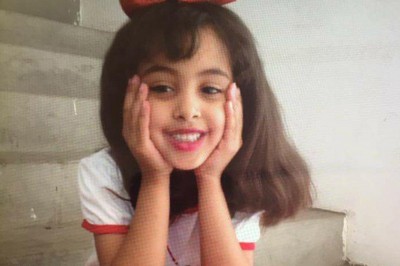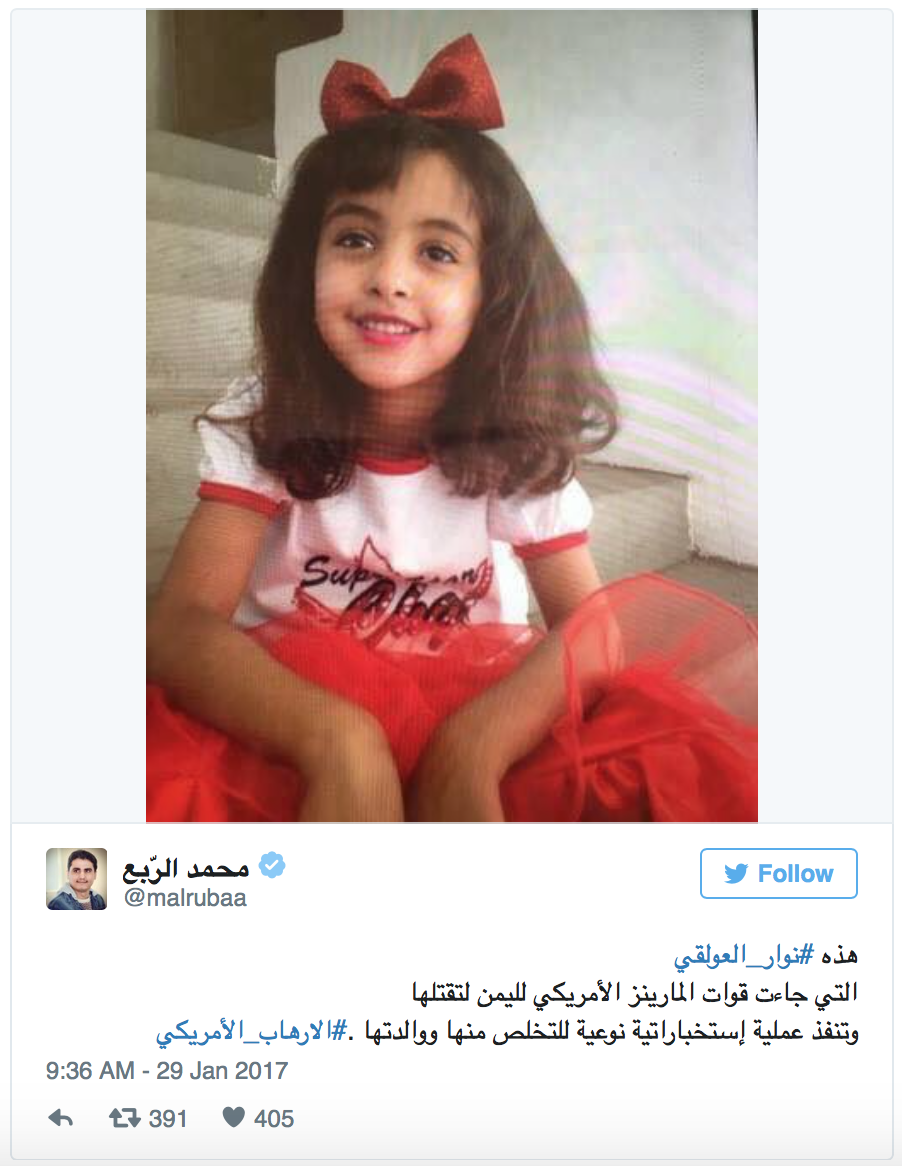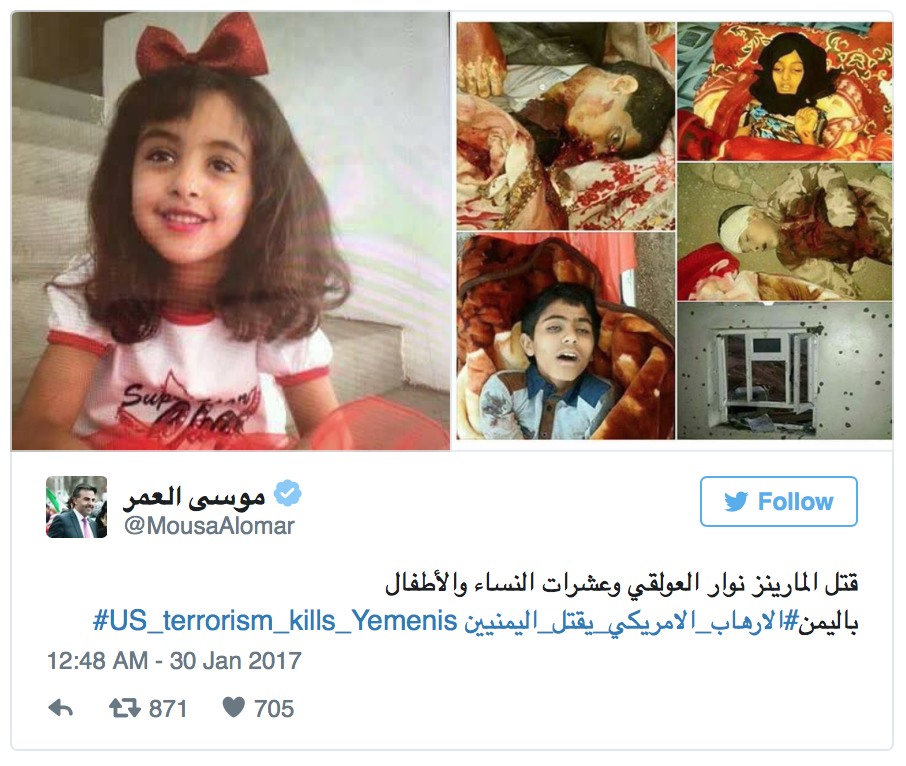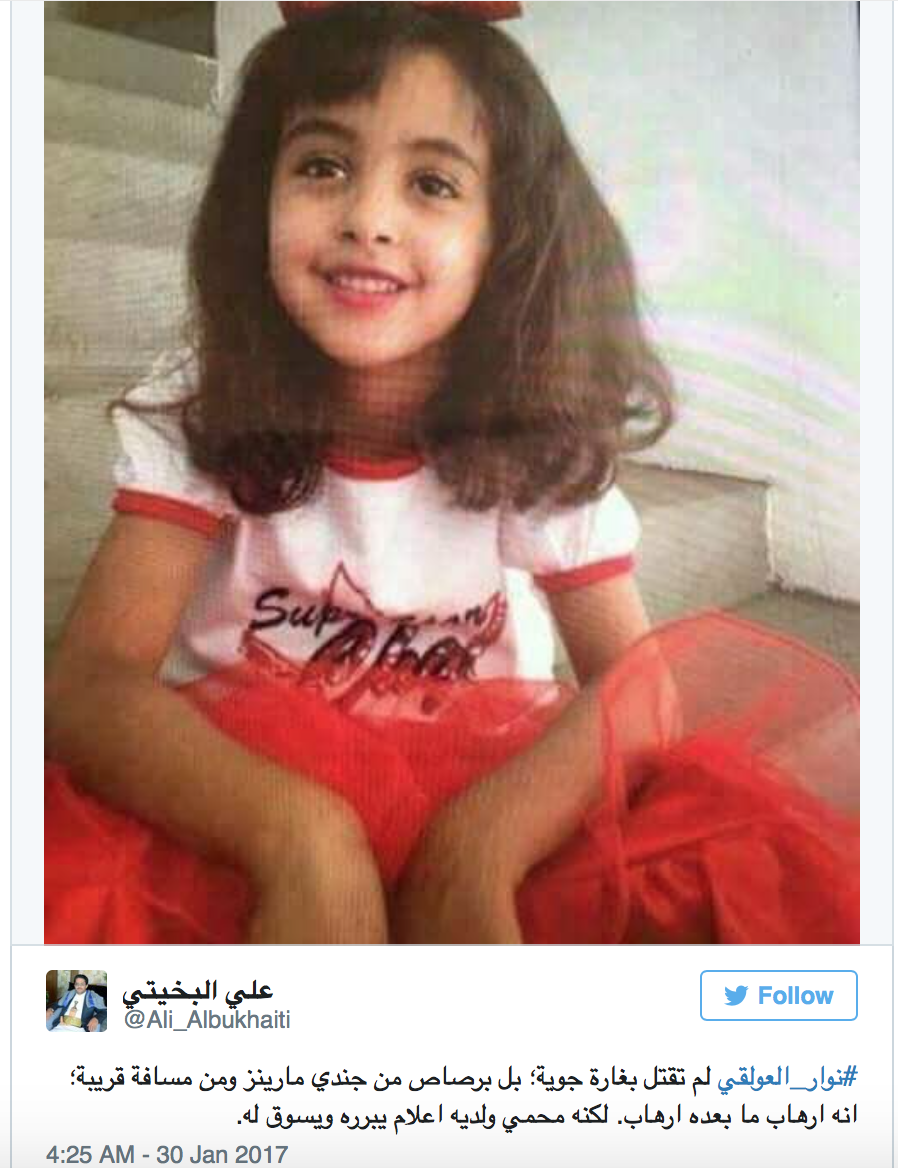US Soldiers Shoot and Kill 8-Year-Old Girl in Yemen

While the media attention has been focused on the death of one US serviceman who was killed during a raid in Yemen, one of the most tragic casualties of the assault ordered by President Donald Trump was an eight-year-old girl.
The raid took place over the weekend, as US forces attempted a “site exploitation” attack that attempted to gather intelligence on Al-Qaeda in the Arabian Peninsula (AQAP), the extremist group behind several high-profile terror attacks, including the Charlie Hebdo attack in Paris in two years ago.
Though the United States hailed the operation as a success, reports from Yemen would seem to indicate that the price paid by Yemeni civilians and non-combatants was extraordinarily high.
‘Don’t cry mama, I’m fine’
According to medical sources on the ground cited by Reuters, 30 people were killed by US soldiers, at least ten of them women and children in what appeared to be a case of disproportionate force utilised by the American commando unit who were sent in to retrieve intelligence.
Amongst the casualties was eight-year-old Nawar Al-Awlaki. Nawar is the daughter of US-born preacher Anwar Al-Awlaki who was the first American citizen to be assassinated in a US drone strike in 2011, decried by civil rights groups as an extrajudicial execution that denied him his right to a fair trial.
Two weeks after Anwar’s assassination, his 16-year-old son Abdulrahman was killed in another US drone strike. Abdulrahman was a US citizen said to have been born in Denver, Colorado and was a child at the time he was killed on the authority of the Obama administration.
With Nawar’s murder, it appears that no relative of Anwar Al-Awlaki is safe, regardless of whether they are children or not, or even involved in terrorism or not.
In a Facebook post, Nawar’s uncle and former Yemeni Deputy Minister of the Environment and Water Resources, Ammar Al-Aulaqi said: “[Nawar] was shot several times, with one bullet piercing her neck. She was bleeding for two hours because it was not possible to get her medical attention.”
“As Nawar was always a personality and a mind far older than her years, she was reassuring her mother as she was bleeding out; ‘Don’t cry mama, I’m fine, I’m fine’,” Ammar’s emotional post continued.
“Then the call to the Dawn prayer came, and her soul departed from her tiny body.”
Trump’s fight against ‘Islamic terrorism’
Nawar’s violent death came as a result of the Trump administration’s fight against so-called “radical Islamic terrorism”. In his inaugural speech, Trump vowed to wipe it off the face of the Earth. Trump made no similar vow against other forms of terror, including state terrorism.
“She was hit with a bullet in her neck and suffered for two hours,” Nasser Al-Awlaki, Nawar’s grandfather, told Reuters.
“Why kill children? This is the new [US] administration – it’s very sad, a big crime.”
In a statement, the Pentagon did not refer to any civilian casualties, although a US military official, speaking on condition of anonymity, said they could not be ruled out. Instead, the US was preoccupied with the death of one US serviceman who was killed during the operation that ended up with Nawar and many other children dead.
Hailing the operation as a success, Trump said: “Americans are saddened this morning with news that a life of a heroic service member has been taken in our fight against the evil of radical Islamic terrorism.”
Two more US servicemen were injured when an American V-22 Osprey military aircraft was sent to evacuate another wounded commando, but came under fire and had to be “intentionally destroyed in place,” the Pentagon said.
Social media reacts
Social media was awash with anger at the death of Nawar, blaming the US for “assassinating children”.
Assassinating children#Nawar_Anwar_al_Awlaqi
One of the victims of the American assault on the Qayfa region in #Yemen
January 2017 pic.twitter.com/zVSPRBD2B8— إفريقيا المسلمة (@Africa_Mu5lima) January 29, 2017
Mohammad Alrubaa, an Arab journalist and television show host, tweeted: “This is Nawar Al-Awlaki that the American marines came to Yemen to kill…#American_terrorism.”
Mousa Alomar, a Syrian journalist, tweeted “[US] marines killed Nawar Al-Awlaki and tens of women and children in Yemen. #US_terrorism_kills_Yemenis.”
Commenting on the fact that many civilian fatalities are justified as “collateral damage” by US military and political officials, Yemeni politician Ali Albukhaiti tweeted: “Nawar Al-Awlaki was not killed in an airstrike, but by a bullet fired by a marine and at close range. It is terrorism beyond terrorism, but it is defended and justified by a media that markets [such attacks].”
Though raids like this one in the rural Al-Bayda province in Yemen’s south are rare, the United States habitually utilises drone strikes to target individuals in what many deem to be extrajudicial killings, especially of its own citizens. Civilians are routinely killed in such drone strikes that are largely indiscriminate, but justified as a “legal act of war” by the US Justice Department.




